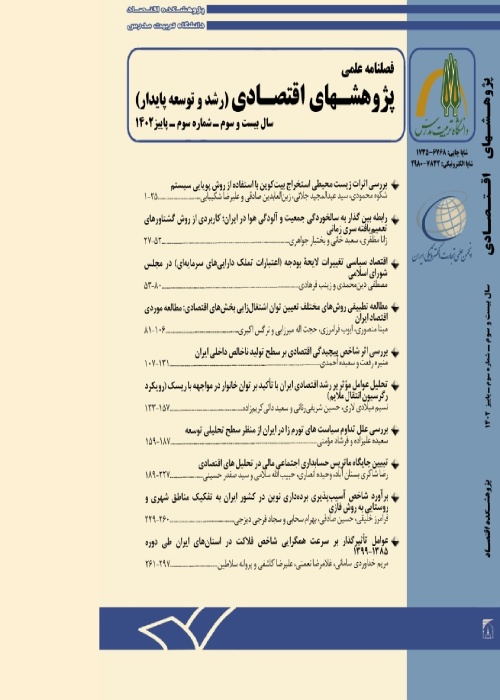The Effect of Financial Development on Income Distribution in Iranian Provinces
Author(s):
Abstract:
Distribution of income in society is so important that almost all economists consider it as one of the main aims and missions of the government. As credit constraints cause inequality in society, thus the development of financial intermediaries and financial markets in national level, which affects access of the low-income and poor individuals to credit and financial services, can influence significantly income redistribution in the country. This study aims to examine the relationship between financial development and inequality among the Iranian provinces. By using fixed effects panel data model, and applying Galor-Zeira theory, the relationship between financial development and income distribution is tested in Iran during 2000-2011. The results show that increasing proliferation of financial intermediaries has negative impact on Gini coefficient and results in more equitable income distribution across the provinces.
Keywords:
Language:
Persian
Published:
The Economic Reseach, Volume:16 Issue: 3, 2016
Pages:
29 to 46
magiran.com/p1609218
دانلود و مطالعه متن این مقاله با یکی از روشهای زیر امکان پذیر است:
اشتراک شخصی
با عضویت و پرداخت آنلاین حق اشتراک یکساله به مبلغ 1,390,000ريال میتوانید 70 عنوان مطلب دانلود کنید!
اشتراک سازمانی
به کتابخانه دانشگاه یا محل کار خود پیشنهاد کنید تا اشتراک سازمانی این پایگاه را برای دسترسی نامحدود همه کاربران به متن مطالب تهیه نمایند!
توجه!
- حق عضویت دریافتی صرف حمایت از نشریات عضو و نگهداری، تکمیل و توسعه مگیران میشود.
- پرداخت حق اشتراک و دانلود مقالات اجازه بازنشر آن در سایر رسانههای چاپی و دیجیتال را به کاربر نمیدهد.
In order to view content subscription is required
Personal subscription
Subscribe magiran.com for 70 € euros via PayPal and download 70 articles during a year.
Organization subscription
Please contact us to subscribe your university or library for unlimited access!


